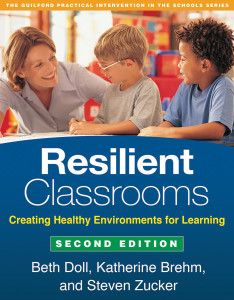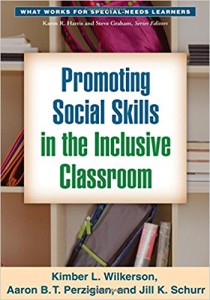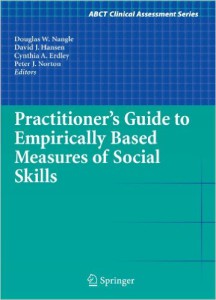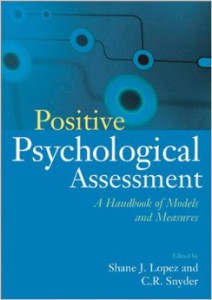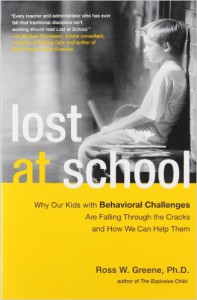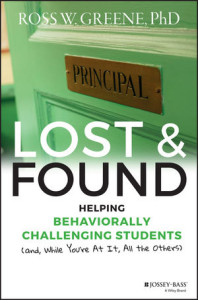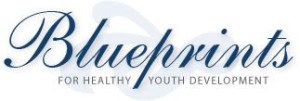Assess
How do you evaluate the success of your efforts to foster SEL? In this section of the site, we focus on the importance of “evidence-based practices”, which involves utilizing programs, lessons and activities that have been shown to be effective as well as evaluating the effectiveness of your own efforts.
SEL Assess Resources
The Well-Being BC website offers practical guides and tools for school administrators and educators towards the implementation of schoolwide supports …
Authors Donnon & Hammond (2007) offer an assessment of the psychometric properties of the self-reported Youth Resiliency: Assessing Developmental Strengths …
Released on September 2019, the Student Social and Emotional Competence Assessment: The Current State of the Field and a Vision …
This guide, developed by experts in child development and school psychology, presents educators with classroom-based strategies for supporting student’s psychological …
Full of practical, hands-on strategies, this book provides educators with the tools they need to help improve the social skills …
The National Child Traumatic Stress Network (NCTSN) is a U.S. organization with a goal to improve access to care, treatment, …
Published in 2010, the Practioner’s Guide to Empirically Based Measures of Social Skills, edited by Douglas W. Nangle, David J. …
The Mood Meter app is a tool that helps build emotional awareness and regulation. Based on the Mood Meter tool, …
Panorama is an organization dedicated to helping schools measure and improve school climate and culture, student’s social-emotional learning, teaching practices …
This online toolkit is designed to help schools and educators incorporate and assess self-regulation in their daily teaching practices. Developed …
Published in 2003, the Positive Psychological Assessment Handbook edited by Shane J. Lopez and C. R. Snyder, provides information on …
Ripple Effects for Kids is an evidence-based tool for children to develop their resilience and the ability to handle non-academic …
This downloadable assessment toolkit, created by Dr. Lori Desautels, an assistant professor at Marian University (Wisconsin, USA), is designed to …
The Search Institute (Minnesota, USA), founded in 1958, works with organizations, schools, and community coalitions to solve critical challenges in …
The “Ages and Stages” questionnaire is a survey completed by parents that can be used by early childhood educators to …
In Dr. Ross Greene’s 2014 book Lost at School, he continues to develop his model, Collaborative Problem Solving (CPS), …
Dr. Ross Green’s 2016 book, Lost and Found – Helping Behaviourally Challenging Students, is a comprehensive overview of the Collaborative …
Strong Kids is an initiative developed at the University of Oregon as part of the Oregon Resiliency Project, aimed at …
6 Seconds, founded by Anabel Jensen and Joshua Freeman, is a global network supporting the development of emotional intelligence …
Program in Education, Afterschool, and Resiliency (PEAR) is a joint initiative between Harvard University and McLean Hospital whose aim is …
This paper is written by the first author of the international Organization for Economic and Cooperative Develoment (OECD) report on …
This issue brief, published on the University of Minnesota extension website in February 2015, highlights the importance of intentionality …
The What Works Clearinghouse (WWC), managed by the Institute of Education Sciences on behalf of the U.S Department of Education, …
The Substance Abuse and Mental Health Services Administration (SAMHSA) is an agency within the U.S. Department of Health and Human …
The Results First Clearinghouse Database was created as a one-stop online resource to help policymakers identify evidence-based programs. The Database …
The Center for Early Childhood Mental Health Consultation (CECMHC) in the United States is a collaboration of research partners from …
The Devereux Early Childhood Assessment for Preschoolers, Second Edition (DECA-P2) is a strengths-based assessment system of within-child protective factors for …
The Resilience Research Synthesis Review Project was developed for the Ontario Ministry of Children and Youth Service in Canada to …
StriveTogether, a U.S.-based group whose mission is to “support the success of every child from cradle to career,” has developed …
This compendium is maintained by the National Center on Safe and Supportive Learning Environments (NCSSLE) and is funded by the …
The Strengths and Difficulties Questionnaire (SDQ) is a 25-item behavioural screening questionnaire developed by R. Goodman in the 1990s that …
The Devereux Strengths Assessment (DESSA) is a 72-item strengths-based assessment of social-emotional competence of youth in kindergarten through grade 8. …
The Comprehensive School Climate Inventory (CSCI) was developed by the U.S. National School Climate Center in 2002. The CSCI assesses …
OurSCHOOL|TTFM (Tell Them From Me) is an evaluation tool designed to help educators and administrators make informed choices on school …
The Middle Years Development Inventory (MDI) is questionnaire completed by youth in Grade 4 and Grade 7. Developed by the …
The Early Development Inventory (EDI) is 104-item questionnaire developed by Dr. Dan Offord and Dr. Magdalena Janus through the Offord …
SELweb is a computer-administered assessment of children’s social-emotional comprehension from kindergarten through grade three developed by the Rush NeuroBehavioral Center …
This 2008 research synthesis, developed by the Center on the Social and Emotional Foundations for Early Learning at Vanderbilt University …
This compendium, published by the U.S. Center for Disease Control and Prevention in 2011, provides educators, researchers, and practitioners with …
Blueprints for Healthy Youth Development is a project hosted by the Center for the Study and Prevention of Violence at …
Building upon CASEL’s 2005 Safe and Sound Guide, the 2015 CASEL Guide considers advances in social and emotional learning …
Building upon CASEL’s 2005 Safe and Sound Guide, the 2013 CASEL Guide considers advances in social and emotional learning …
The 2005 Safe and Sound Guide was CASEL’s first compendium of social and emotional learning (SEL) programs, and was designed …
Commissioned by the Raikes Foundation, this report reviews existing assessment tools designed to measure the social and emotional well-being of …
This 2011 brief, prepared for the National Center for Mental Health Promotion and Youth Violence Prevention in the United States, …
This is a 2014 handout from CASEL that highlights six key features of high-quality standards for social and emotional learning …
This compendium, published in 2010 in the United States and supported by CASEL and the University of Illinois – Chicago, …
Learn
Schools have primarily focused on academic learning, but over the past few decades, a growing body of research has shown how efforts to foster social and emotional learning (SEL) in children and youth can make a real difference in children’s lives, both now and in the long term. LEARN about what SEL is, why it is important, and the evidence that supports the promotion of social and emotional competence in children and youth.
Apply
How do you foster SEL in children and youth? In this section of the site, we provide links to a broad range of programs, curricula, lesson plans, activities, books, videos and other resources for promoting social and emotional competencies in children and youth.
The SEL Resource finder is a collaborative effort.
Submit resource suggestions for review.


